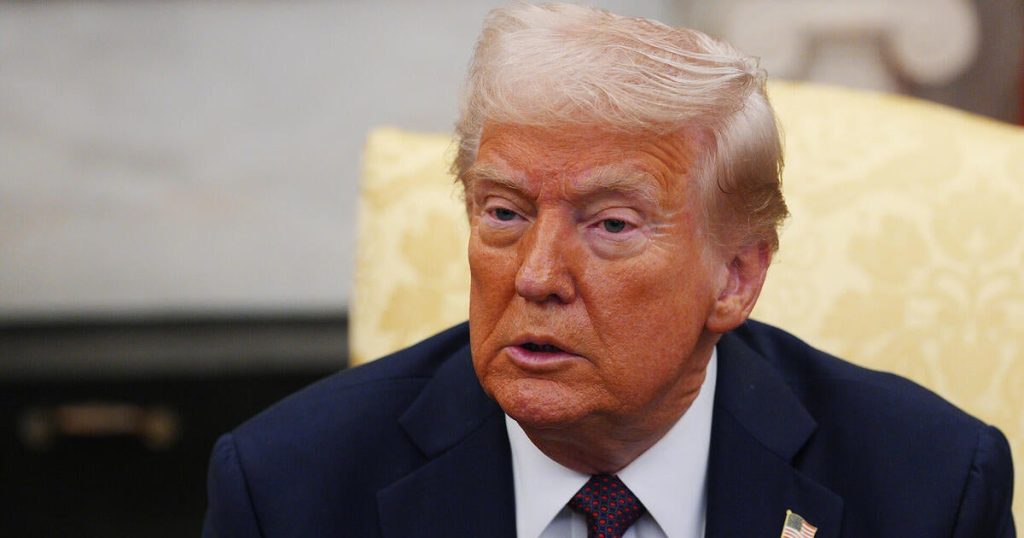The Trump administration has authorized a significant arms sale to Israel valued at nearly $3 billion, which includes advanced munitions and equipment. This decision bypasses the typical congressional review process, providing Israel with crucial resources as it continues its military operations against Hamas in Gaza. Amid ongoing negotiations for a ceasefire and the release of hostages, this arms package is expected to play a pivotal role in the conflict situation.
| Article Subheadings |
|---|
| 1) Overview of the Arms Sale |
| 2) Details of the Munitions and Equipment |
| 3) Context of the Conflict and Ceasefire Talks |
| 4) Implications of the Sale for U.S.-Israel Relations |
| 5) Future Prospects and Ongoing Negotiations |
Overview of the Arms Sale
On a critical battlefield, the Trump administration has given the green light for an arms sale to Israel that totals nearly $3 billion. This military support comes at a time of intense conflict between Israel and Hamas, which has been ongoing since the outbreak of hostilities in October 2023. The State Department notified Congress of this decision, which allows the transaction to move ahead without a comprehensive review typically required for such sales, indicating a rapid response to the pressing military needs of an ally.
Details of the Munitions and Equipment
The arms sale includes a substantial quantity of munitions essential for military operations. Specifically, the package encompasses over 35,500 MK 84 and BLU-117 bombs, alongside 4,000 Predator warheads, totaling an estimated value of $2.04 billion. Furthermore, Israel has been authorized to procure Caterpillar D9 Bulldozers and additional associated equipment, with an estimated price tag of $295 million. Deliveries of these items are anticipated to start in 2027 as the U.S. based company gears up to fulfill the contract.
Additionally, the Defense Security Cooperation agency confirmed the sale of munitions valued at approximately $675.7 million. This segment will see production by Repkon USA in Tampa, Florida, and The Boeing Company in St. Charles, Missouri, signaling a continued intertwining of defense interests between these nations. The projected delivery of these munitions is expected to begin in 2028, suggesting a long-term military strategy being put into place.
Context of the Conflict and Ceasefire Talks
The backdrop of this arms sale is the fragile truce currently in place following prolonged conflict that began with a terrorist attack by Hamas on October 7, 2023. The states involved, including the U.S., Egypt, and Qatar, are actively engaged in negotiations aimed at solidifying the ceasefire, which recently entered its first phase. This phase, intended to free Israeli hostages and Palestinian prisoners while facilitating humanitarian relief to Gaza, saw its terms expanding as both sides expressed willingness to extend the truce amid ongoing discussions, which highlights the complexities and sensitivities of the region’s politics.
Implications of the Sale for U.S.-Israel Relations
The approval of this arms sale underscores the strong military alliance between the U.S. and Israel, reaffirmed in recent years amidst rising tensions in the Middle East. Critics of the sale may argue that bypassing congressional reviews undermines legislative oversight in arms distribution, particularly in volatile regions like Gaza. Supporters, on the other hand, argue that swift military support is critical for Israel’s security as it confronts threats from Hamas. This arms sale may further solidify the bond between the two nations while also raising concerns among those who advocate for more stringent checks on foreign arms sales.
Future Prospects and Ongoing Negotiations
The ongoing negotiations regarding the ceasefire and hostage exchanges remain fluid as both Israel and Hamas approach the next stages tentatively. Reports indicate that Israel is considering seeking an extension of the current ceasefire phase to ensure further releases of captives held by Hamas. As the discussions evolve, the situation on the ground may dictate the dynamics of future peace talks, influencing not only the military and humanitarian aspects but also international diplomatic efforts to facilitate lasting peace in the region.
| No. | Key Points |
|---|---|
| 1 | The Trump administration has approved an arms sale to Israel valued at nearly $3 billion. |
| 2 | The sale includes a large number of bombs and warheads, which are crucial for ongoing military operations. |
| 3 | This transaction bypasses the usual congressional review, indicating a rapid response to Israel’s military needs. |
| 4 | Negotiations for a ceasefire and hostage exchange are ongoing amid the backdrop of this military support. |
| 5 | The implications of this sale on U.S.-Israel relations reflect both military alliances and tensions surrounding arms control. |
Summary
The authorization of nearly $3 billion in arms sales to Israel by the Trump administration represents a significant response to the ongoing conflict with Hamas, highlighting both the military needs of Israel and the complexities of international arms trade. As negotiations for an enduring ceasefire and the release of hostages continue, these developments will likely play a crucial role in shaping future dynamics in the region. The situation remains tense, and the continuous commitment from the U.S. to support Israel militarily raises critical questions about the balance of power and security in the Middle East.
Frequently Asked Questions
Question: What is the significance of this arms sale to Israel?
This arms sale is significant as it provides Israel with crucial military resources in the ongoing conflict with Hamas, enhancing its operational capabilities while also affirming the strong alliance between the U.S. and Israel.
Question: Why did the Trump administration bypass congressional review?
Bypassing congressional review allows the administration to expedite the delivery of military support to Israel, addressing urgent military needs without the delays that a comprehensive legislative review might incur.
Question: How do the negotiations for a ceasefire relate to this arms sale?
The negotiations for a ceasefire are ongoing and interconnected with the arms sale; as long as hostilities continue, military support for Israel remains a point of focus, while the prospects for peace talks hinge on the resolution of humanitarian issues and hostage releases.



